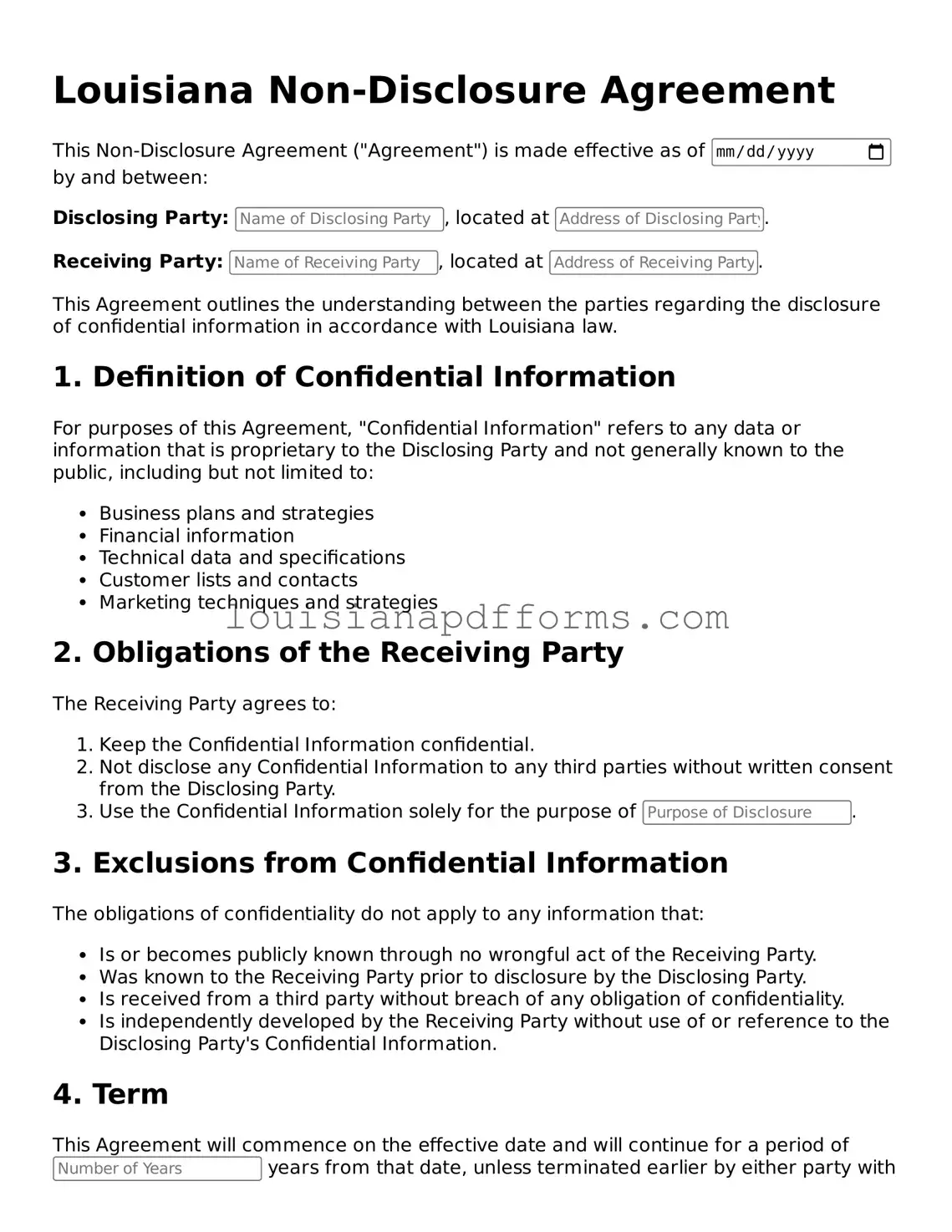Louisiana Non-disclosure Agreement Form
A Louisiana Non-disclosure Agreement (NDA) is a legal document designed to protect sensitive information shared between parties. This agreement ensures that confidential details remain private and are not disclosed to unauthorized individuals. Understanding the key elements of this form is essential for anyone looking to safeguard their business interests.
Access My Document Now

Louisiana Non-disclosure Agreement Form
Access My Document Now

Access My Document Now
or
Free Non-disclosure Agreement
You’re halfway through — finish the form
Edit, save, and download your completed Non-disclosure Agreement online.